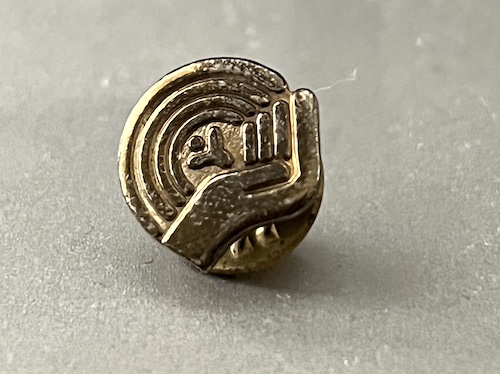Giving is a personal value, whether or not you have enough
Many professional coaches I know provide their services pro bono to nonprofits, schools, or other organizations. I do, too.
In the past year I’ve donated my time and services to Cancer Support Community, CHC:Creating Healthier Communities, the San Francisco Writers Conference, UC Berkeley, my ICF chapter, the California Conference for Women, and more. I’ve served as a board member, donated coaching engagements, and even donated a full publishing package.
This post is about why it’s important to me to give what I can, even when money is tight.
Consumerism, community involvement, and the holidays
This is a busy time. In a five-day period, we have Thanksgiving, Black Friday, Small Business Saturday, Cyber Monday, and Giving Tuesday.
We’re asked to be grateful while being gluttonous, to buy stuff, to buy more stuff, to buy even more stuff, and finally to give away what’s left after spending so much on ourselves and our loved ones.
I tend to opt out of this frenzied consumerism. It all feels so… unimaginative and transactional. And somewhat disingenuous and self-centered, if I’m being honest.
But I promised myself that I won’t go on a rant about consumerism. I’ve done that before.
Only you can decide when you have “enough.” Enough is a personal measure based on your own values, perspective, and what you want to get from this very short life.
This post is, instead, about my own giving, as a solo entrepreneur.

How I learned about charitable giving as an adult
I like to think my parents raised me with a value of helping others. They certainly embody and live that value, so it must have rubbed off in some way. I don’t, however, remember any specific lessons in it.
I vaguely remember what I consider my introduction to charitable giving as an adult. Fresh out of college in 1989, I was on my own and had my first real job, at Boeing in Seattle when they had an office building at the South Center mall.
One day I followed my new coworkers out at lunchtime onto the lawn outside our building, where some group I’d never heard of was having an event involving hot dogs.
I might have donated something because that day I received a United Way lapel pin.

At the time, I had no idea that two decades later I’d be running the largest workplace giving campaign in the country and coordinating a $5 million, multi-year grant to United Way. In my 15 years working in corporate responsibility, I believe I moved over half a billion dollars to nonprofit organizations.
Big numbers, in a 150-year-old public company that could well afford it.

During all those years, I personally donated what my family felt we could give, to several causes important to us. We even involved the kids in some of these decisions.
Through my work, I saw people who seemed far more generous than I, such as those making barely $35k donating more than $2,000 a year. And I saw people who seemed not generous at all, such as those making well over $350k giving $1,000 a year just so they could get invited to the special recognition luncheon.
To paraphrase what I said earlier, “enough” is a personal measure based on your own values, perspective, and what you want to contribute in this very short life.
Giving when you’re starting a business
When I left the paycheck workforce and started Gray Bear Coaching LLC two years ago, I knew my budget would be tight.
Most founders experience a revenue gap until business starts rolling. Add to that the initial investments required, and the end of every month becomes a very stressful time indeed. “Financial stability” is a subjective phrase. Even if you’re in great shape by some standards, watching your savings run down faster than the revenue creeps up can stretch anyone’s charitable nature.
After all, two in 10 small businesses close within a year, and three more are gone by five years. After 10 years, only three of those original 10 are still standing.
It might seem unreasonable to expect the solo entrepreneur to have much of a focus on charitable giving and community involvement when they’re focused on beating such dire survival odds.
I’ll admit, my charitable donations have dropped a little since giving up a steady paycheck. Meanwhile, my involvement and donations of time and expertise have increased.
As I said at the beginning, a lot of professional coaches I know are eager to coach pro bono. I think that’s because their primary motivation is to be of service.
I have a few friends who work in the venture capital world. It’s a different level of startup, where hundreds of millions are invested with the hope for huge returns.
My VC friends have told me that startup founders’ only thoughts are on survival. If they manage to survive, then their only thoughts are on growth. Perhaps, once they’re successful enough, they can add in some charitable giving, community involvement, and employee volunteerism.
Again, there’s that word: enough.
I give because it’s genuinely important to me
As we go through the festival of transactional capitalism that is Thanksgiving week—beginning with overindulgence in food and drink, booming into Black Friday, rising to crescendo on Cyber Monday, and then atoning with the cheap penance of Giving Tuesday—I am reflecting on my own situation.
I am in the second year of my small business, smack in the middle of that risky period when 30% of small businesses fail. There is a long way to go. There is much risk ahead.
But I’m not waiting until I am successful enough before I donate my money, time, services, and products.
Survival is a strong motivator. I’m in a risky period of my business. There’s still a lot of uncertainty in the economy. I could spend every waking moment (including the hours in the middle of the night tossing and turning in the dark) working on my business’ survival and growth.
But I didn’t form Gray Bear Coaching and Gray Bear Publications to get rich. I formed them because I love the work, I am good at the work, and there are people to help.
Which is why I’ll continue to give my money, time, services, and products to causes that are important to me and where I can make a difference. It’s part of what I want to accomplish in my short time here.
I can help.
I work with top executives and middle managers to improve their leadership skills, their workplace culture, and the effectiveness of their teams. Also, I help individuals identify and achieve their personal goals. Would you like to become more aware, be more effective, be more empowered, and feel fully prepared for your next steps?
You can help.
Think of one person who would benefit from reading this post. Sharing is caring! Forward it to them right now. They will think you’re super smart and well informed.
Stay informed.
Be sure to join my email list! Get notified of new posts here as well as new courses, books, and events from me both here and at Gray Bear Publications.



0 Comments